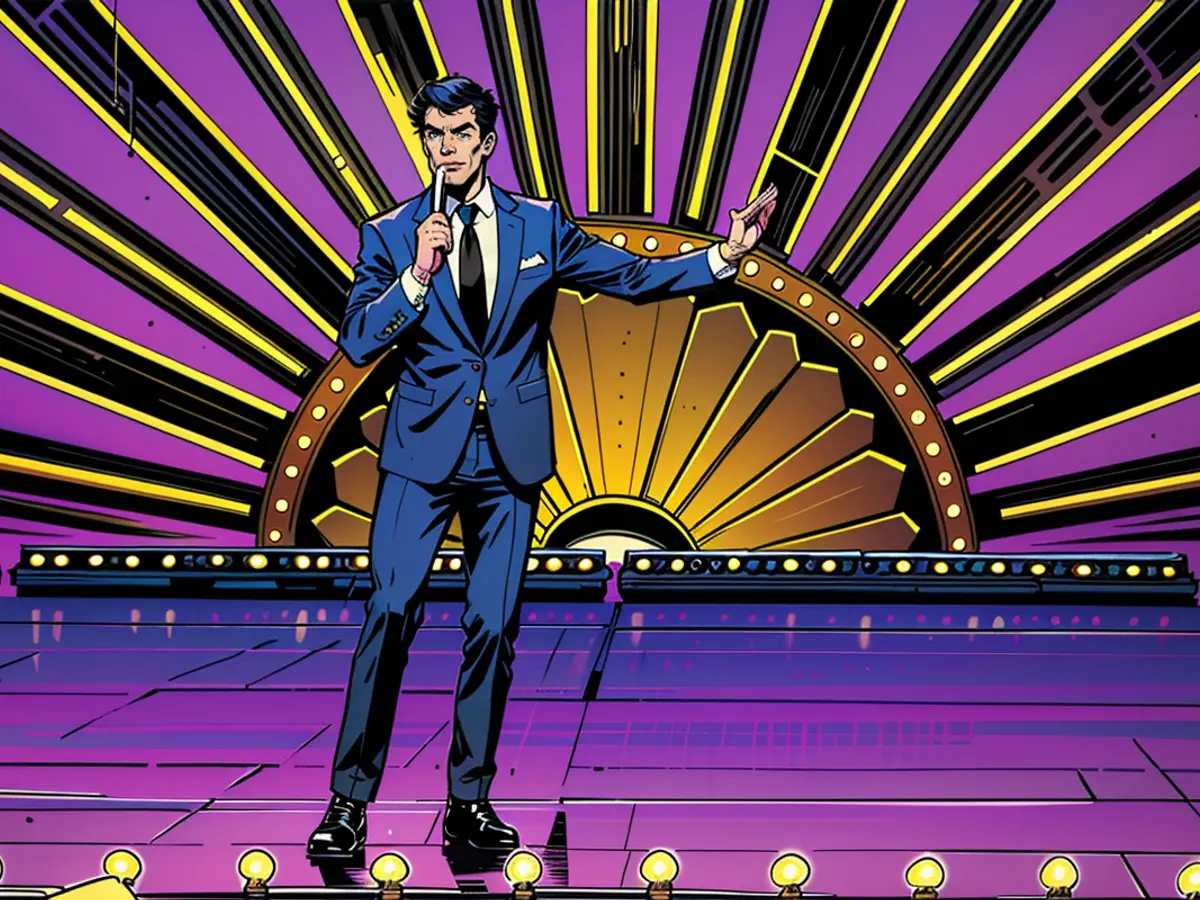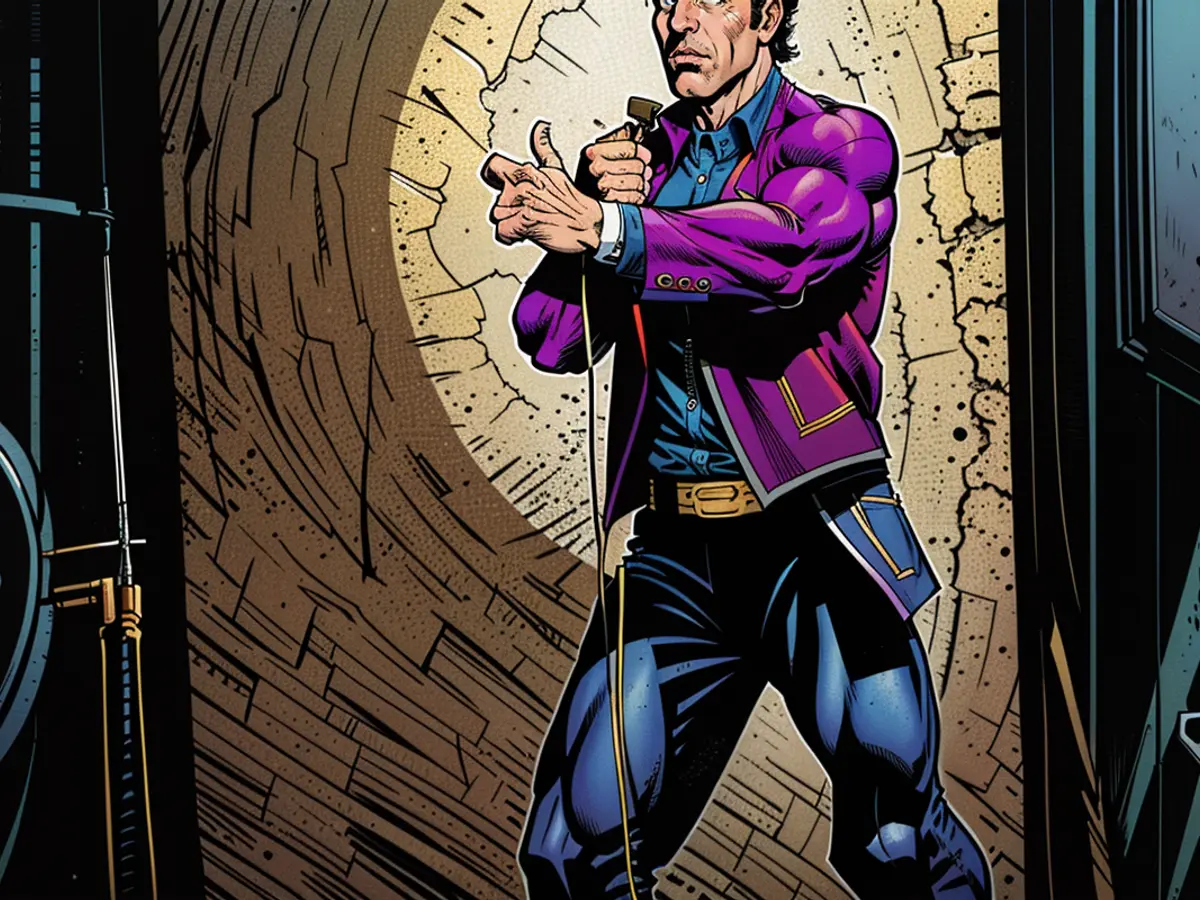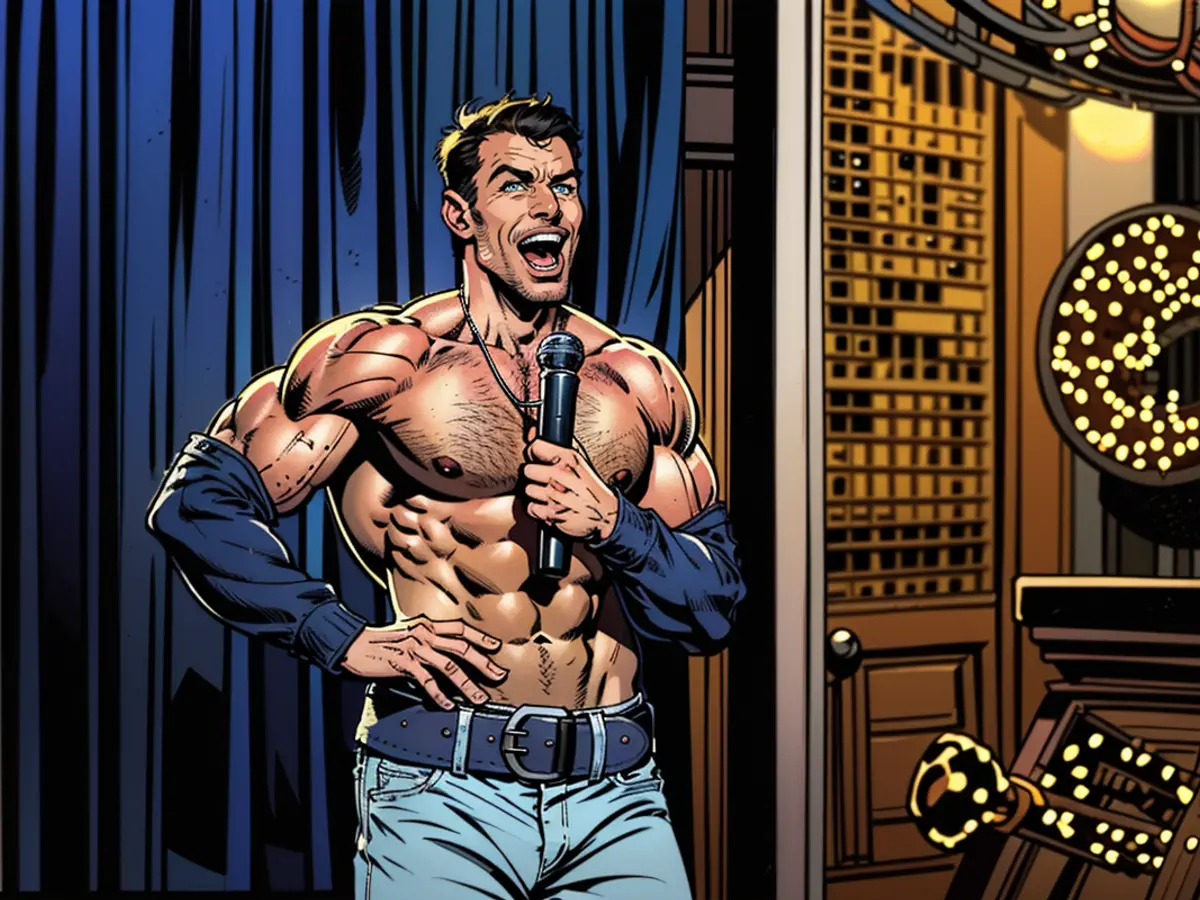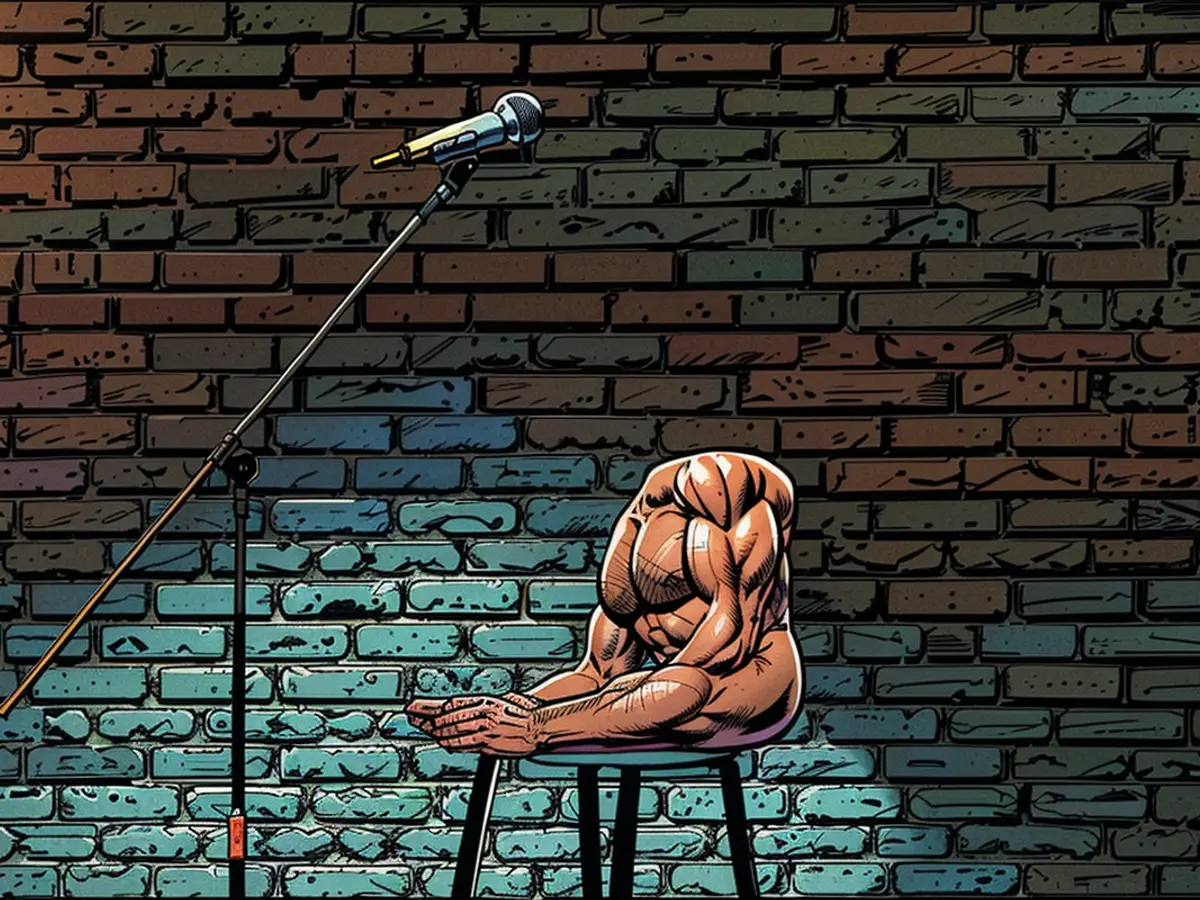Stand-up comedy is undergoing transformation, as cited by comedians, and this shift is generally viewed positively.
Although she'd been performing stand-up comedy for six years, she was encountering challenges. Her jokes weren't securing bookings, not even for local shows, and the sensation of failure was becoming all too familiar.
Her scheduled performance with Don't Tell Comedy in Los Angeles was supposed to be her swan song, her final hurrah. Sure, she might do the occasional set here and there, but as far as dedicating herself fully to stand-up comedy, she was done.
However, Don't Tell Comedy uploaded her whole set on YouTube, along with a snippet on TikTok, featuring a humorous take on interracial dating. If you're active online, you might have stumbled upon it. She starts with a bang, "Those who are into interracial dating, well done. Same goes for Thomas Jefferson."
The crowd cheers, and she keeps them engaged, cracking jokes about the unique experiences of dating Black men versus White men.
This TikTok clip quickly gained traction on the platform, racking up over 4 million views. The 10-minute YouTube video, meanwhile, garnered more than 800,000 views.
Overnight, her Instagram follower count doubled (currently at 89,000). Famous personalities from reality TV left comments. Comedy icons started messaging her. A few months later, she opened for Bill Burr at Madison Square Garden. The experience still causes her to well up with emotion.
"I've always been a good comic, a hard worker, and I just needed people to see me," Sampson said. "Don't Tell did that for me."
Don't Tell Comedy differs from typical comedy shows. The location and lineup remain a secret until the day of the show. There's no minimum drink charge, making shows more affordable. Some events are even 'bring your own booze.' And they're popular, with as many as 149 people packing into an Atlanta basement boxing gym to watch local comedians perform.
For comedians across the country, Don't Tell Comedy provides more opportunities in smaller cities. And, as Sampson can attest, Don't Tell Comedy's online presence is substantial — with a combined following of 5.2 million across YouTube, Instagram, and TikTok.
Sampson is just one of many comedians who have experienced success through Don't Tell Comedy. Since its inception in 2017, comedians say Don't Tell Comedy has improved the comedy landscape.
What is Don’t Tell Comedy?
One of the most significant things Don't Tell does is quite straightforward: They offer comedians a platform, particularly online.
Rather than relying on a random TikTok clip gaining traction, Don't Tell provides comedians with a built-in social media audience, a rarity in today's dynamic media landscape. One of its millions of followers might stumble upon a comedian's clip, like it, follow the comedian, and later, buy tickets to their tour. Building a fan base becomes easier when that happens.
Netflix and other streaming services have invested significantly in promoting and producing stand-up specials, but opportunities on such platforms are typically reserved for well-known comedians. There's a gap, a chasm, that Don't Tell aims to bridge, between renowned comedians and lesser-known ones.

"That's the tough part in comedy," Kazanjian-Amory said. "You're either living in a luxurious mansion, or you're scrimping to pay rent."
That disparity wasn't always the norm. In the 1980s, comedy clubs were eager for comedians to fill their time slots. The number of venues exceeded the supply of comedians. Comedians could earn a comfortable living doing stand-up in their own cities. Eventually, some of these artists broke through, achieving fame and becoming household names, like Jerry Seinfeld and Ellen DeGeneres.
However, even if they weren't megastars, the middle-class lifestyle was still within reach in the 1980s.
The 1980s comedy boom eventually faded. Fewer venues meant fewer opportunities for comedians to make a living without already being famous. The definition of success changed: With a narrowed path to a middle-class lifestyle in comedy, comedians aimed to build enough momentum to pitch a sitcom, like Ray Romano or, later, Chris Rock.
This success model continued into the 2000s. Comedy gatekeepers, such as late-night shows and Comedy Central, determined whether a comedian was funny enough to be given a platform, be it a 10-minute set, a half-hour special, or later, an hour-long special. Eventually, they might even secure a development deal for a show (like Amy Schumer and Nick Kroll).
Nowadays, the approach to earning money through comedy has largely switched. Comics now have to build and cultivate their fan bases through various channels, such as popular podcasts or newsletters, so fans are willing to purchase tickets to watch them perform live. Previous platforms have diminished in power; they've been replaced by a more grassroots approach, driven by social media platforms like TikTok, Instagram reels, and YouTube.
However, the concept of comedians having fans is a fairly recent development, according to Fox. Although comedians like Seinfeld could sell out arenas, most working comedians were merely the main attraction at a comedy club on a Friday night. But that's changed now.
“This scenario has aided comedians of all levels to establish fan bases,” Fox explained. “And from those fan bases, you can generate a sustainable income. It's much more stable than relying on the whims of certain gatekeepers.”
Comedians praise 'Don’t Tell' as setting the bar
Grace Johnson has been doing comedy since 2021. After meeting Kazanjian-Amory last year at the New York Comedy Festival, 'Don’t Tell Comedy' produced and released her 10-minute special in June. Although the special boosted her online presence, Johnson said simply having the credit was significant.
“‘Don’t Tell’ currently stands out as one of the leading platforms for comedy, in the same way Comedy Central has been,” Johnson stated. “Especially for those who have been doing it for a shorter period, it’s been a truly validating experience.”
There are tangible benefits too. 'Don’t Tell' provides comedians with a high-quality, professionally produced video, which can then be submitted to festivals or used in a reel. For instance, six camera operators and a production designer worked together to produce Johnson’s set. These aren’t ordinary iPhone videos; they’re top-notch, professional clips that could encourage others to hire her as well.
'Don’t Tell' is committed to democratizing that access. The team doesn't cater to the number of followers one has on Instagram, Kazanjian-Amory clarified. They are only interested in whether or not someone is funny. Scanning through their feed, you'll notice comedians of various ethnicities, genders, and demographics. 'Don’t Tell' doesn’t solely focus on a particular type of comedian. Comedians who recently went viral, such as Susan Rice and Andy Huggins, both in their 70s, are among the rising stars on the platform.

“That’s the special secret sauce of ‘Don’t Tell,’” Johnson emphasized. “It’s just, ‘Is it good? Okay.’”
Nowadays, 'Don’t Tell' is the go-to destination for stand-up comedy, said comedian Jay Jurden, especially for lesser-known comedians. Unlike traditional outlets like TV or streaming, one can continually scroll through platforms like TikTok, Instagram, or YouTube, watching more and more stand-up comedy.
While the complete 10-minute performances are accessible on YouTube, 'Don’t Tell' uses short, minute-long vertical videos with large captions on other social media pages. They offer entertaining comedy snippets that encourage audiences to view longer sets, like Sampson’s viral TikTok video. This technique maintains viewer engagement and exposes viewers to an array of comedy.
When discussing the intangibles – diversity, audience engagement, and vertical integration – Jurden stated, “‘Don’t Tell’ truly sets the bar.”
Where does comedy go from here?
By opening up an additional avenue for comedians to gain recognition, both online and locally, 'Don’t Tell' has facilitated the opportunity for more comedians to advance their careers. Objectively, that's a positive development; earlier this year, Vulture described the enterprise as “Comedy’s Benevolent Gatekeeper.”
However, there are restrictions to the format. Although 'Don’t Tell' boasts a substantial online audience, it doesn't control what goes viral and what doesn't. It provides a platform to various individuals, but operating on the internet means it's still subject to algorithmic whims.
“If you consider what else works on YouTube or Twitter, good things don't necessarily become successful,” Fox said. “It's the content that triggers a specific response from people. That reaction might not be suitable for building the right kind of audience.”
The concern, Fox explained, is that it may encourage comedy that's louder, noisier, or more reactionary – factors that perform well on social media. Alternatively, it could result in audiences expecting stand-up comedy to feel like Instagram reels or TikTok videos.
This isn't 'Don’t Tell Comedy's fault. It's simply the nature of the internet. However, if people consume stand-up comedy primarily online rather than live, it could become a concern.
Despite this, comedians need exposure, and 'Don’t Tell' has the potential to introduce more individuals to a diverse range of comedians, at varying levels. That means more audiences attending live stand-up comedies, supporting touring comedians, and supporting stand-up comedy as a whole ecosystem.
“‘Don’t Tell’ will help a lot of people discover their new favorite comedians, whose careers will continue to prosper in the coming years,” Jurden said. “To me, that is ultimately good work that should be celebrated and commended.”
In the case of Sampson, and countless other comedians like her, this work has been life-changing.

The success of Sampson'sTikTok clip on Don't Tell Comedy led to a significant increase in her online presence and Instagram followers, ultimately opening doors for her to perform at prestigious venues.
As a result of Don't Tell Comedy's substantial online following, comedians like Sampson have a built-in audience to help them establish fan bases and build sustainable income.







